Always HomeA Daughter's Recipes & Stories
A cookbook and culinary memoir about growing up as the daughter of revered chef/restaurateur Alice Waters: a story of food, family, and the need for beauty in all aspects of life.
In this extraordinarily intimate portrait of her mother–and herself–Fanny Singer, daughter of food icon and activist Alice Waters, chronicles a unique world of food, wine, and travel; a world filled with colorful characters, mouth-watering traditions, and sumptuous feasts. Across dozens of vignettes with accompanying recipes, she shares the story of her own culinary coming of age and reveals a side of her legendary mother that has never been seen before. A charming, smart translation of Alice Waters’s ideals and attitudes about food for a new generation, Always Home is a loving, often funny, unsentimental, and exquisitely written look at a life defined in so many ways by food, as well as the bond between mother and daughter.
FANNY SINGER is a writer, editor, and co-founder of the design brand, Permanent Collection. In 2013, she received a Ph.D. on the subject of the British pop artist Richard Hamilton’s late work from the University of Cambridge. In 2015, she and her mother, Alice Waters, published My Pantry, which she also illustrated. Having spent more than a decade living in the United Kingdom, Fanny recently moved back to her native California. Based in San Francisco, she travels widely, contributing art reviews and culture writing to a number of publications including Frieze, The Wall Street Journal Magazine, Apartamento, T Magazine, and Art Papers, among others.
Fanny Singer
What does ‘home’ mean to you? It’s a personal question. One that has a danger of becoming overly existential. Fanny Singer, daughter of Alice Waters chose to look into the question and answer for herself. A wonderful collection of stories from various times and places she has experienced. As well as the marvelous collection of characters who helped to create the experiences. All of which can be encapsulated for Fanny through various dishes and food creating a connections to her mother that always makes her feel at home.
Fanny Singer spoke to us from her home about her new book, Always Home.
BAF: The obvious question is the title. How did that come about?
Fanny Singer: Well, I’m not a prophet as much as it would seem to indicate that I am. Actually, the working title of the book was Home. Because I felt like what I was working on was a set of stories that described a feeling, rather than a literal place. It was this idea of speaking about how a sense of racination, and being oriented in a place, and feeling comfortable, is something that is actually a thing that you can transport and create anywhere.
The idea initially was just to call it Home, kind of more vaguely. And then my editor implored me to come up with something just a little more distinct. And so I was talking about it with Calvin Trillin, who is my kind of fairy godfather and the author of many wonderful books, and it was actually his suggestion to call it Always Home. I feel like I really owe him for the extra layer of strange prophetic-ness the title has. So that’s how that ended up happening.
BAF: I think you told me you’re 34, 35, I think?
Fanny Singer: 36. When I was writing it, I was, I guess, 33, 34.
BAF: So at that ‘ripe old age’ where’s your starting point? How do you begin the process?
Fanny Singer: I knew that it wasn’t going to be any kind of straightforward autobiography, so I wasn’t just starting at the beginning and writing through to this point in my mid-thirties. Mainly because I just don’t think I have a life that’s so interesting and distinguished that it needed or required that kind of narrative.
I wanted it to be a very focused book that looked at the formation of my relationship to both food, but also an aesthetic sensibility, and its evolution. That to me is very, very tied to my relationship with my mother, and the restaurant, Chez Panisse. And then a few other key characters who had an enormous impact on the way that I think about food and the way that my palate has developed.
So it was actually like, I didn’t write it in any kind of start-to-finish way. Because it is in these vignette structures, and they’re not necessarily following along one from the next narratively, it allowed me the freedom to write about whatever subject I was thinking about or thrilling to in the moment, and then actually afterwards organize them in the book, the way that they are.
It was kind of the things as the stories that felt most salient to me, that I ended up writing. And there are plenty more. I mean, I could have written, I guess, a book twice as long. But at a certain point, you’re just like, “That’s enough. No one needs any more than that.”
BAF: These moments in time, how did they come to you? Did they appear spontaneously or stream of consciousness? Or did they sort of hit you, “This is important. I should write about this. I don’t know why, but I should,” or “Definitely writing about this.”
Fanny Singer: Kind of half and half in a way. It was like 50%, I knew… They were more sort of over time historicized stories or accounts of things that had happened in my childhood. So those are stories that tend to be, maybe a third of them are like that, that tend to be concrete and detailed and narrative in nature.
And then the other things, it wasn’t…I knew that there were really foundational recipes that I wanted to write about that felt really important. Then that almost became the genesis of the story. It was like how to set up this recipe, was to describe the people who prepared this food or who surrounded this memory around food.
The writing process itself was very, yeah, intuitive. I mean, I didn’t… I am an art critic and the majority of the writing that I do as an art critic or art historian, is usually heavily researched and contextualized. And it was really interesting to write for a place in which I was using only the repository of my own memory and emotional reality to conjure stories and content.
That was really a different process for me. It was a very, very different process of writing and it was frictionless. I mean, it wasn’t… Writing, I think for any writer, involves a degree of agony, but it was actually really pleasurable to kind of sit with these memories and then things would kind of bubble up to the fore as I was working on them.
BAF: You had the book, the concept, and did anything bubble up from ether demanding to be heard all of a sudden at the last minute, or surprisingly? Did something just hit you saying “there’s something here”.
Fanny Singer: Well, I think for one, salad announced itself at the very end of the book, where it was like, “Why haven’t you written a chapter about me, dedicate a chapter about me?” And I was like, “I don’t know, I will rectify that.” So it was the final addition to the manuscript was the chapter that just was dedicated to salad, and how much my mom and I love salad, and how it’s the thing that we always describe as our favorite food.
But I mean, in terms of what I feel like you’re asking, which is a little bit more about perhaps the emotional or psychic content that comes up when you’re working on something like this. For certain, I didn’t know exactly how I was going to even talk about my mom, beyond her presentation within certain stories, but actually, how was I going to speak about…
Because I wrote the preface once the book was finished. So it was a matter of actually, how do I contextualize this? How do I speak to this relationship? Which is a very visible relationship, but which has all kinds of nuance that is not visible to the public.
And yeah, so I think that was the moment where I was trying to be both tender and also honest about my relationship to her.
BAF: Because I could see that as being a difficult situation to maneuver, just because there is your mom who is well known. As you said, very visible. You don’t want to come across as just being Alice Waters’ daughter writing a book about her mom sort of thing. You’re writing about this unique relationship. So that must have been a hard, interesting point to navigate.
Fanny Singer: No, I wouldn’t say that it was hard, so much as it was, I don’t know, necessary. And also possible because I had left and lived in England for 11 years, and before that I was on the East Coast for college. I had been away for quite a long time.
I saw my mom regularly. She would travel to Europe and I would meet her in Italy, or we’d find some other place to triangulate and spend time together, and I would return to California a fair amount. But I really did figure out how to differentiate myself, in a way, I guess, and figure out who I was on my own terms. And that was a necessary precursor to being able to return to California, and also write about a subject that is incredibly intimate for me, and at the same time, the most public aspect of my life.
So I think I had the benefit of it not being a tell-all expository book, which I had no interest in writing, and which my editor had no interest in receiving. I think there are some people who are interested in the finer details of my mom’s life, I suppose, but there was no appetite for that for me or for my editor. So I got to kind of write the book that I really wanted to write, which was a very particular perspective on her.
BAF: This was not the original concept for the book that I think you had been approached to do after writing My Pantry, or working on My Pantry with your mom, I believe it was. This concept grew out of its own.
Fanny Singer: Yeah, no, that’s kind of right. I mean, variously since I was like 18, I’d been sort of intermittently contacted by publishers interested in me writing some kind of book. And I really couldn’t have done it sooner in a way, at least not a book that is about food or food-centric.
Certainly some of the editors that I met in the process of selling Always Home were interested in a little bit more of a lifestyle book, or something that was a more traditional recipe book. And I was not so interested in doing that, because I cook, but I don’t think of myself as a professional cook. Whereas I am a writer.
So to me that felt like the only authentic way to create a book that, even if it’s centered around food, was also for it to have a really strong prose component. And so, when I ended up going with Knopf to publish it, and Peter Gatherer is my wonderful editor, he was just so open to it being really a literary book that had food, as opposed to being just strictly a cookbook.
BAF: This is such an interesting story and everything is so intermingled. The recipes? How did they get included?
Fanny Singer: Yeah, it was for the most part, I made a list of recipes that to me seemed kind of like the foundational brick work of how our family relates to food, and how I think about food, and the comfort things that we gravitate to, and the things that are just essential to our repertoire. And then the stories grew out of that.
In a few instances, it was sort of the story would come, and then it was like, what’s the best recipe to illustrate this idea? So when I’m talking about, there’s a chapter dedicated to smell. And that recipe is the fruit galette, because of the way that the unique smell that cooking fruit and caramelizing sugar has. It’s so evocative. It felt like the right recipe to have folded into that account.
BAF: Now, did your art training in any way help you with your cooking? I’ve always been interested in artists who cook and vice versa just because sometimes I feel there’s an interesting synergy there.
Fanny Singer: Yeah. My mom has always said, and I think I maybe say this in the book, but just that the best cooks are artists. And she means that in a very loose sense. There’s a kind of intuition and creativity that really some of the wonderful cooks in our lives have, that is and resembles the type of creativity and intuition that I think a fine artist practicing at the height of their profession also has.
But at the same time, I think she also kind of meant it in the most direct sense, which is like David Tanis and Nilifra actually are our artists. And the way that they conceive of the whole atmosphere and space of conviviality and gathering, the presentation of dishes, the colors that they’re using, is an art form.
And I think that I’m absolutely conditioned in that same way. The way that I cook and present food and my consideration of what I’m serving it on or how I’m serving it, is something that, I would say comes as much though from looking at art and studying art as it does from just growing up with my mom. Because those are endless concerns for her. She’s 76. And she’s no less interested and particular about exactly how certain dishes are presented than she was 20 years ago, 30 years ago. So she’s an incredible model in that regard too.
BAF: I know a lot of times when kids grow up and they have a parent who’s very into, (camping, boats, horses, etc) And that’s all they’re dealing with. A lot of times, they might not want to go into that particular thing. But you seem to have gravitated towards what was the center focus of your mother and what was going on in your life.
Fanny Singer:Yeah, I mean, People ask me a lot about whether I rebelled.
BAF: I was trying not to use that word.
Fanny Singer: At some point in my teenage years, did I want to eat other food or repudiate what my mom was doing or feeding me? And the simple answer is just, no. But the more nuanced answer is, I think when you have someone providing you something that is so delicious and actually also nourishing, when it’s a question of you actually being a growing teenager, who’s constantly playing sports, which I was, you need to be nourished.
There were times where there was plenty of discord in our household. I was a normal teenager, but my mom being able to communicate with me actually through food, I think is one of the things that was a kind of saving grace in that moment. Didn’t have to be expressed in language. It could be expressed through making something really delicious and really beautiful that made me feel an implicit care.
And there was never a moment where I didn’t want to have that. There was so much tacit love and also nourishment, de facto nourishment, in that act of providing something like what she would make day after day. For my lunch. For my breakfast. For dinner. And we would always sit down together at night to have dinner together. So there was also a kind of ritual of that.
Now, coming back to this world as an adult, I’ve never felt any pressure to take on the restaurant or become a professional cook or be in the food world. There’s been so much freedom and absolutely no demands from my mother to do that.
So, in a way, it’s allowed me to migrate back towards these subjects and this world in a kind of quite organic way.
BAF: You must have traveled with your mom quite a bit on her journeys, on her voyages of discovery, for lack of a better word or vacations So when you would see her out in the field, so to speak, with the farmers and the providers. And also seeing the other side of how the food for the restaurant comes out presented.
That must have also increased your appreciation for how things are done, your appreciation for the food and where it comes from and the craft versus artistry of what’s involved. As a kid, I guess maybe you appreciate your mother and you see what she’s doing.
Fanny Singer: There is one farmer named Bob Cannard, who provides the majority of the vegetables and fruits to Chez Panisse. And it’s been a like 30, 40 year long relationship. The restaurant’s coming up on 50 years this next year, which is wild. And Bob’s farm has been in a kind of, what he always joked was a monogamous relationship with Chez Panisse.
So it was a very early version of, and kind of trailblazing version of, farm-to-table, was for a restaurant to say that they would support a farm entirely. That funding model would sustain a single person in their livelihood, and their employees, and also sustain the restaurant.
This is an idea that my mom is obsessively pursuing under a new sort of idea for a program of having all schools support farms. She calls it school supported agriculture, where there would be a couple of farms that would be able to be sustained entirely by a unified school district. And she’s trying to get this to happen across the state of California, but eventually, the country.
But yeah, I obviously went to Bob’s farm all the time when I was young. We always had food growing in our garden here in Berkeley, and I had lots of exposure to the people who were making it and producing beautiful things that Chez Panisse had received.
So I understood that causal relationship and that reciprocal relationship very early on. And also understood the extent too, I mean, with my mom’s edible school yard being 25 years old now, there is a real tangible sort of activism and altruism that has defined her as a professional. That’s been the way that I’ve seen her for the majority of my life.
She’s been a good role model, needless to say.
BAF: There are some lovely images in the book, some beautiful photographs. What was Brigitte Lacombe like to work with?
Fanny Singer: Brigitte is the most extraordinary, professional person. Fastidious. Attentive. It was really an extraordinary process working with her. I’ve known Brigitte for some years because she was a family friend. I have a kind of fairy godmother figure who’s one of Brigitte dearest friends. So Brigitte would come to California kind of every year, and I would see her in California.
But still, I didn’t know her intimately, you know. And I actually had been following…when she had for a time was a private Instagram account that was just kind of these off-the-cuff little snapshots of things that she was eating or little views of things or people on the street. It was a very different type of photography than what she’s known for, which are these very composed, beautiful studio portraits. And she’d also done commercial work for really big brands like Prada and Dior.
And so I was thinking like, “God, she’ll never say yes to a project like this, but I’m so intent on having…” I wanted there to be photography in the book. I knew that there needed to be a visual component, but I really didn’t want it to be a traditional kind of look for a cookbook.
I didn’t want it to have illustrative recipe kind of images. And I also didn’t want it to get into that kind of maximalist food-porn kind of look. These highly colored saturated over-the-top images of dishes. To me, they’re so unvariegated. You just don’t get a lot out of it. I wanted the photography to feel textural. And I also wanted it not just to describe food, but to describe the relationship between me and my mom. And my mom and Brigitte are also very dear friends.
So I drank a couple of Negronis at the Carota in New York, and then emboldened, I emailed Brigitte and asked her if she would consider working on this project with me. And much to my glee and surprise, she said, “Oui Fanny. It sounds interesting.” So then we went on from there.
Brigitte travels 10 out of 12 months a year. She’s based in New York, but she travels for work constantly. So then it was a matter of figuring out where we could meet around the globe to actually have these sessions of making images together.
It was in those maybe four days, or sometimes almost close to two weeks, in which we were just together constantly. And in which I observed the extent of just her vision of things. She’s both so serious about getting the right image, but she’s also so attentive to circumstances, so sensitive. I mean, she’s an incredible artist. Getting to work with her on this was… In a way, the great gift of this book was to have this repository of images made by her.
We met her in the south of France in Bandol, to take images at Domaine Tempier, which is where this family the Peyraud’s live, who are like surrogate family to us. Lulu Peyraud , in particular, is now 102. Had just turned 100 when Brigitte and my mom and I went to see her. And just to have those images made in that moment of time, and specifically of Lulu, was just so special.
BAF: Okay. So you’ve been the subject of a book, your mom’s books, picture books. You have been a co-author and illustrator. Now you’re a full-fledged author, full-time. What’s next for you? Or actually, maybe I should ask you if you have a preference first. I’ll take that back. Do you have a preference?
Fanny Singer: I also have a design company Permanent Collection with my friend Mariah Nielson. So I say that I’m a full-time author, but I’m also a full-time entrepreneur. Which is a sort of funny thing to juggle, and it’s been… I mean, I don’t sleep that much, to be honest.
But we have this small design company that’s now three years old called Permanent Collection, which was for us the way to create objects that were historical usually, that we felt had a certain value by reproducing them. Sometimes in collaboration with an artist estate. We worked with the Alexander Calder Foundation. Sometimes in collaboration with a cook, like my mom. And sometimes with living artists or designers. We’ve also worked with her father’s artist estate to make some of his products again, re-issue them.
We’re moving increasingly into my home ware and kitchen stuff, because we’ve got some natural traction there. And because people are so happy to see my mom’s favorite, especially my mom’s favorite tools that have been tested by 60 years practically, or 50 years of choice and selection, that those things have a lot of resonance for people cooking now, especially at home.
That’s a huge part of my time. I would love to write another book and I’m in the kind of beginning process of figuring out what that will be. And I do a lot of art writing. So as soon as museums open again, or we figure out how to adapt the way that we’re looking and thinking about work, that’s something that I’ll always do.
I was a contributing editor at the Wall Street Journal Magazine for a long time. So I also write, not just art writing, but just kind of broader cultural features too. It’s these sort of three interchangeable hats that somehow all work together. I’m not going to question it for now.
~~~~~~~
Booksaboutfood.com © 2020
“Singer’s memoir, Always Home: A Daughter’s Recipes & Stories, is a tender portrait of the woman better known to the world as the mother of the farm-to-table movement.” —Chloe Malle, Vogue, “The 5 Best Books of 2020 (So Far)”
“You will probably pick up this book because you’re curious about how it feels to grow up with Alice Waters as your mother. But you will inevitably be captivated by Fanny Singer’s sensuous voice and sensible soul. The writing’s lovely, but more than that, Fanny has struck a kind of brutal honesty that is extremely rare and completely beautiful. Her writing makes you want to taste every flavor she describes, and soon you’ll be dashing into the kitchen to make watercress soup, wild fennel cakes, and breakfast pudding. But the really important thing is that I’m pretty sure everyone who reads it will come away with the same feeling that I have: Why don’t I live my life like this? How can I do better? I love this book.” —RUTH REICHL, author of Save Me the Plums
“A charming and unique almost–love story, almost-memoir, with predictably fabulous recipes.” —MARK BITTMAN, author of How to Cook Everything
“To read Fanny Singer’s intimate and honest memoir is like having a mouthful of jewels. After fourteen years of cooking with her and her mother, Alice Waters, I got to know her even better through her perfect book. Singer’s writing reminds me about everything important to me in life, the four f ’s: friends, food, family, and fun.”—CLAIRE PTAK, owner of Violet Bakery in London and author of The Violet Bakery Cookbook
“Fanny Singer’s joyful, witty, and loving encounter with American genius inside the home and in the world heralds the arrival of a new voice, one that understands the pleasure to be found in discovery, and the ever evolving mystery embedded in the known. A book like no other, an instant classic.” —HILTON ALS, staff writer, The New Yorker
“In this wondrous memoir-cookbook hybrid . . . Singer’s language is read-out-loud luscious, and her culinary coming-of-age story savory and sweet.” —Publishers Weekly (Starred Review)
“This heartwarming, feel-good, highly recommended memoir will appeal to fans of cooking, culinary travels, and family ties.” —Library Journal
“Singer’s charming narrative, interwoven with Lacombe’s painterly black-and-white photographs, bursts with sensuous descriptions of tastes, fragrances, and textures as she recounts her “very rich and full and just a little bit unconventional” young life . . . . An intimate homage to an iconic restaurateur.” —Kirkus Reviews
“Singer tells her own tale and that of her influential mother, tying the two together with their love of food and knack for powerful storytelling.” —Town & Country (“6 Best Books to Read This March”)


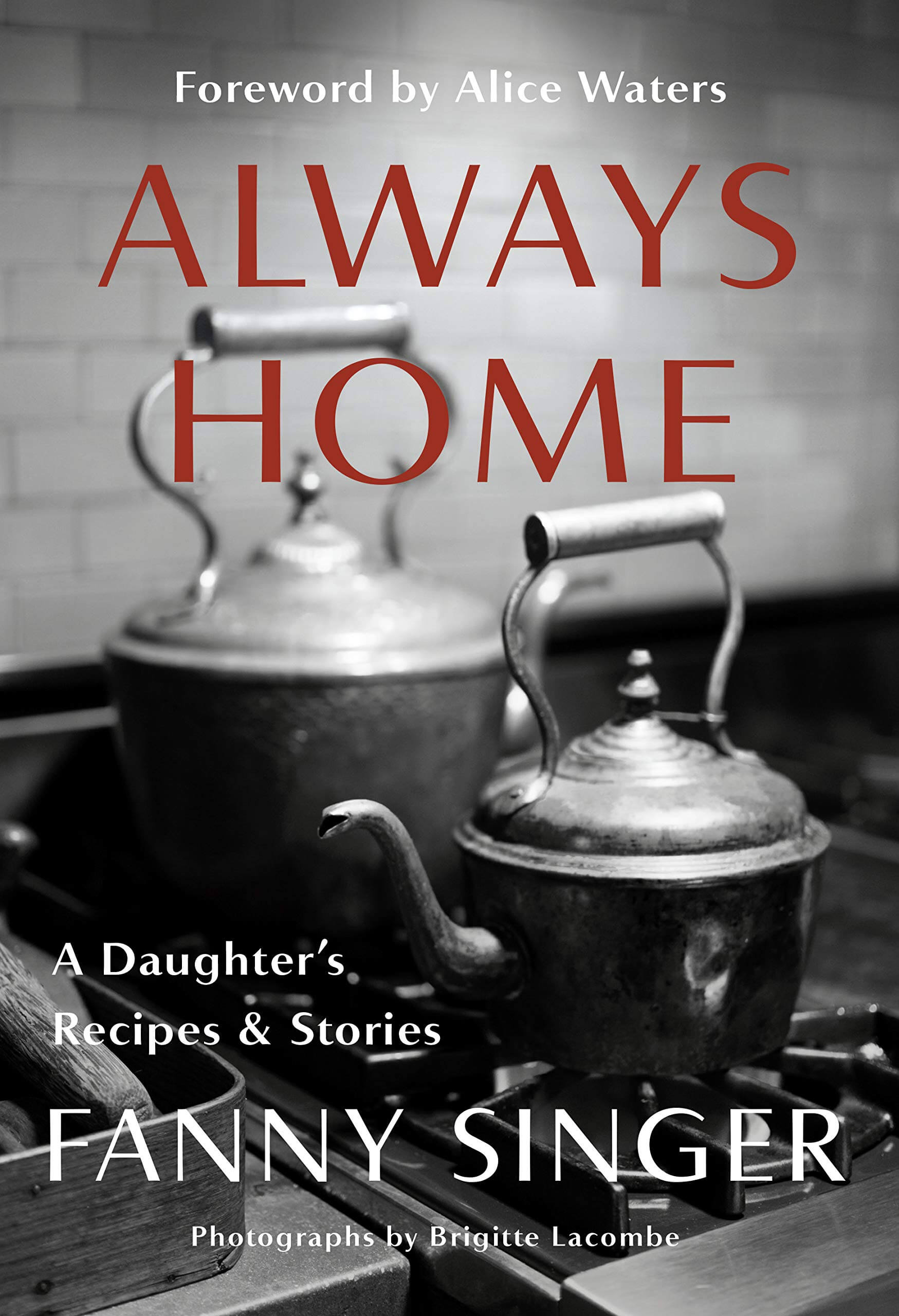


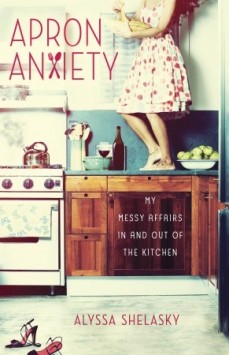
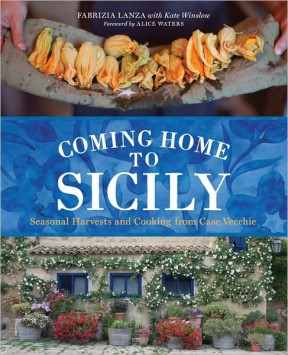
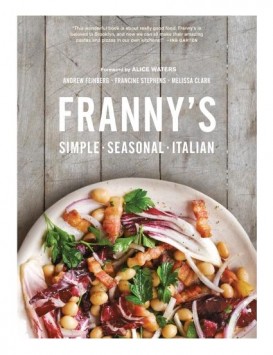
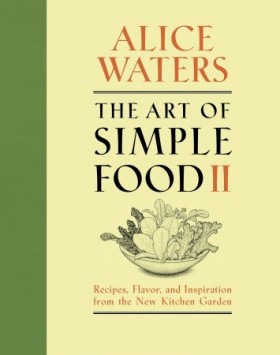
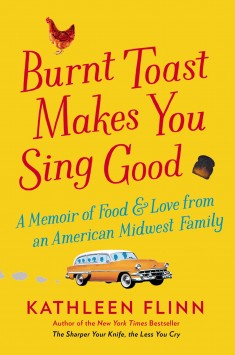
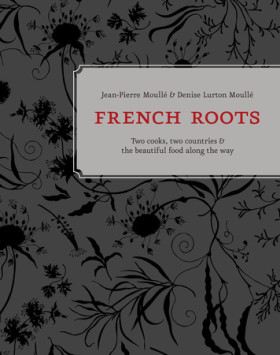
Leave a Reply